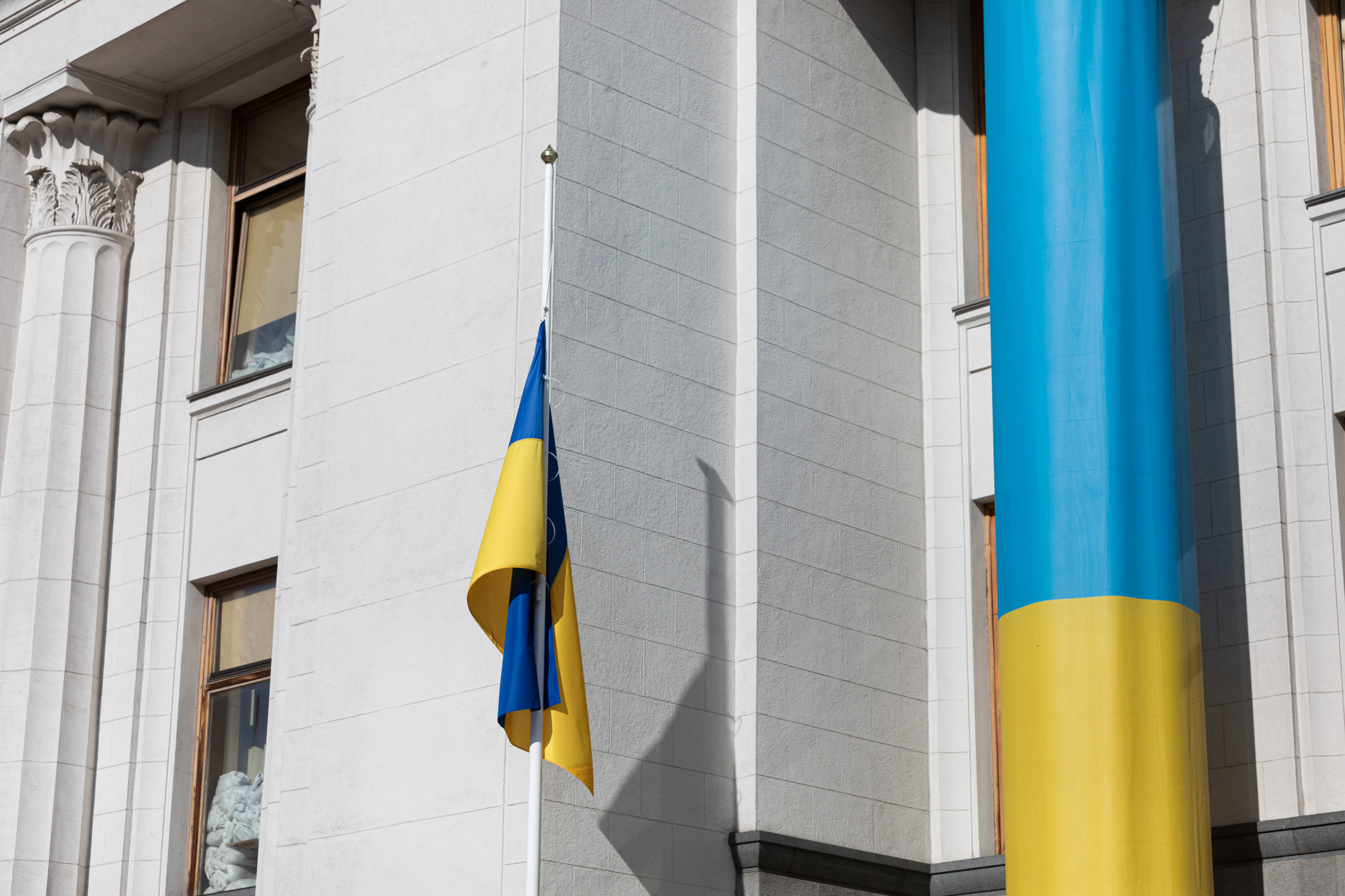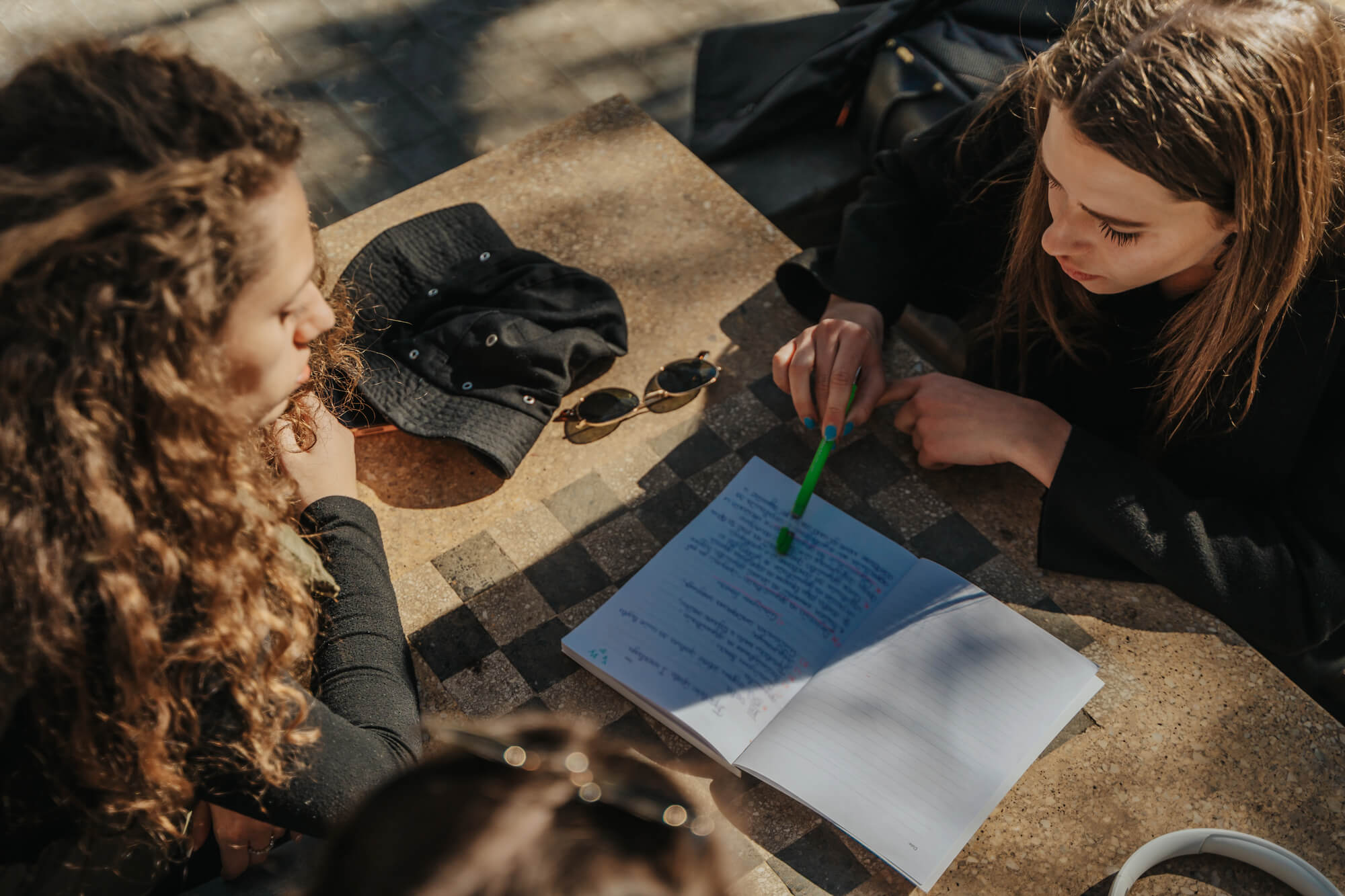Ukraine’s education system has been severely disrupted by the brutal invasion by Russia, forcing the country to display remarkable resilience and adaptability to the constantly changing circumstances of war. With frequent air raids and pervasive stress, children are now studying in bomb shelters, and those in the occupied territories are being coerced to attend Russian schools. In this dire situation, it is crucial for the West to continue to exert pressure on Russia to protect the rights of Ukrainian children from Russia’s genocidal efforts.
According to the Ukrainian Ministry of Education, over 2,000 schools in Ukraine have been adversely affected by the ongoing war, with over 300 of them completely destroyed.
As a result, many children now have to learn virtually. According to information from the Ministry of Education and Science, over 60% of educational institutions in the country have shelters. This implies that about 40% of schools do not have adequate shelters and cannot resume in-person learning.
In response to the limitations posed by the number of available shelters, certain schools have adopted a hybrid model of education, whereby some classes alternate between in-person and online learning on a weekly basis. This arrangement is subject to change based on the availability of shelter spaces, with some shelters even including subway stations, necessitating additional travel time for students to get to and from school. Ukrainian children were also forced to spend a staggering over 900 hours in bomb shelters in 2022.
Aside from the need to have bomb shelters in schools, in the fall and winter months, Ukraine has been plagued by frequent and prolonged power outages, causing significant disruptions to the operations of many enterprises and institutions, including schools.
In times of power outages, schools are unable to conduct online learning, and during air raid alerts, all online classes come to a halt. When a teacher lacks electricity, the entire class misses the lesson, irrespective of whether it was intended to be in-person or virtual. Similarly, individual students who are without power may struggle to keep up with their peers and risk falling behind in their studies.
Currently over 40% of Ukrainian children are learning online, 29% are using a blended learning model (both online and in-person), 26% are attending educational and training institutions in person, and 3% are learning at home. The academic performance of students has deteriorated, with almost one in five mothers reporting a significant deterioration in their child’s academic performance and a decrease in the quality of education.
A virtual education mode has significant implications for the social development of children. In many cases, students have been isolated from their peers, and the lack of face-to-face interaction has led to a loss of opportunities to develop key social skills. The fact that many children have had to spend long periods of time in bomb shelters can be incredibly traumatic, especially for young children.
With the shift to online learning, both teachers and students had to adapt. Svitlana Moroz, a Deputy Director of a school in Kyiv, explained that teachers had to bear additional costs to ensure that they can go online on time, such as paying for coworking spaces, purchasing new devices, and even buying gasoline for generators. When the light and power is turned on in the middle of the night, exhausted teachers often had to take those opportunities to catch up on their work.
Moroz has brought attention to the fact that when parents contact teachers to express their worries or frustrations during wartime, teachers tend to offer a listening ear. They recognize the overwhelming difficulties that families face, with fathers away at war, children struggling to find safety, and businesses in disarray. Therefore, teachers have become a crucial source of support for parents, providing them with a space to vent their emotions and seek guidance.
Despite the overwhelming pressure on the education sector, teachers understand that their role goes beyond academics, and that they must provide a sense of stability and comfort to families navigating such difficult circumstances. Nevertheless, the war will likely leave Ukrainian schoolchildren far behind their peers.
The Ukrainian education system has come under increased pressure in the occupied territories, as Russian authorities mandate attendance in Russian schools. Those who refuse to attend, as well as parents who do not send their children to these schools, are now facing administrative and criminal sanctions. The move is widely viewed as part of a broader attempt by Russia to eliminate Ukrainian culture and education in the occupied territories.
In addition to the mandatory attendance policy, the invading Russian army has been carrying out a campaign of cultural destruction. This has included burning Ukrainian history books and destroying archives that document Soviet repressions. Teachers in the occupied regions have also been forced to teach in Russian, further undermining the Ukrainian education system.
There have been reports of forced singing of the Russian national anthem and coerced expression of support to the occupiers in schools in cities like Tokmak and Melitopol. While the occupiers aim to integrate education into the Russian system, there are challenges such as lack of teachers and basic subjects not being taught in some schools.
The history of Russia’s suppression of Ukrainian language and education dates back centuries. The Soviet Union, under Stalin’s leadership, orchestrated a brutal campaign to eliminate Ukrainian nationalism and culture, which included targeting Ukrainian teachers and intellectuals.
Stalin’s regime saw the Ukrainian language as a threat to the Soviet Union’s unity and sought to suppress it at all costs. Thousands of Ukrainian teachers and intellectuals were arrested and detained, often subjected to torture and forced confessions. Those who were considered even remotely connected to Ukrainian nationalism faced imprisonment, hard labor, or execution. The Soviet government also purged Ukrainian-language books from schools and libraries, replacing them with Russian literature and propaganda.
Moreover, the current campaign against Ukrainian education is not a new development but a continuation of Russia’s longstanding efforts to undermine Ukrainian people and their culture. Ukraine’s schoolchildren have now become the primary targets in this campaign. This systematic approach of denying access to education in Ukrainian language and imposing a Russian-language curriculum is an attempt to erase Ukrainian culture and identity from the next generation.
This practice is a form of cultural genocide that can have severe consequences for the future of Ukraine. Without a proper understanding and appreciation of their own culture, children in these areas may find it difficult to connect with their roots and maintain their heritage. The Russian government’s goal is to create a generation of individuals who are detached from their Ukrainian identity and, instead, have an allegiance to Russia.
Over the past year, Ukrainian schoolchildren have been exposed to profound lessons on sacrifice and struggle that will impact them for a lifetime. These young minds are growing up amidst heroes, witnessing firsthand how people have given their lives for Ukraine’s freedom and independence. Despite the challenging circumstances, Ukraine is determined to maintain stability in its education system, and to provide as much of a sense of normalcy as possible for these children. However, it cannot be denied that the ongoing war has far-reaching effects, shaping an entire generation of Ukrainian schoolchildren who will play a pivotal role in the future of Ukraine and its fight to preserve its freedom.
Attention
The author doesn`t work for, consult to, own shares in or receive funding from any company or organization that would benefit from this article, and have no relevant affiliations


